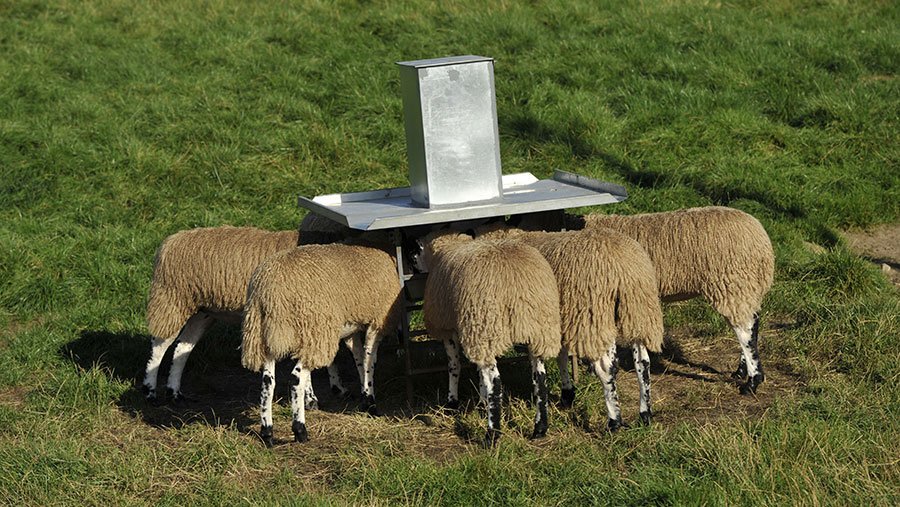Brexit uncertainty halts animal feed supplies
 © FLPA/Wayne Hutchinson/Shutterstock
© FLPA/Wayne Hutchinson/Shutterstock Animal feed shipments to Northern Ireland are being delayed because of uncertainty over post-Brexit certification rules, say farm suppliers.
The Agricultural Industries Confederation (AIC), which represents UK suppliers with an annual farmgate value of more than £8bn, issued the warning in a briefing note to its members.
See also: Border friction hampers trade despite Brexit deal
Although last month’s Brexit deal means tariff-free trade can continue between the UK and EU, suppliers are facing non-tariff barriers across a range of sectors, it said.
This includes shipments of various products from Great Britain to the EU and Northern Ireland.
The most urgent issues could result in significant harm to UK farm suppliers unless they are quickly resolved, warned the AIC.
Among the most pressing issues is ongoing uncertainty over whether export health certificates are needed for livestock feed containing certain processed animal proteins.
Lack of clarity
The AIC said it had been seeking clarity on the issue for some time.
“This is particularly relevant for feeds containing materials such as milk and milk-derived products, gelatine, hydrolysed proteins, eggs, dicalcium phosphate and collagen,” it said.
“Currently, there is no clear guidance on certification and, as a result, livestock feed exporters are unable to export products to Northern Ireland or the EU.”
Earlier, NFU Brexit director Gail Soutar said export health certificates, customs declarations and border controls are all a consequence of the UK leaving the EU. future
Ms Soutar said the UK has the power to do things differently and is not tied to the EU rule book – but any changes will have to be carefully considered.
This includes weighing up any pros and cons – including any consequences should the EU decide it is reducing its standards.
Dispute settlement
L Alan Winters, of the UK Trade Policy Observatory, said the Brexit deal falls short of replicating the frictionless trading arrangements enjoyed before Brexit.
The deal will be reviewed every five years and the technicalities within it evaluated continuously, explained Prof Winters. Some 20 committees and working groups have already been set up.
“In addition, there’s a whole swathe of dispute settlement processes,” he said. “It’s a recipe for continuing a perpetual negotiation and – if we’re not careful – friction.”
Transport industry leaders said issues are partly due to businesses not having a full understanding of the new requirements for moving goods to and from Northern Ireland.
‘Inevitable confusion’
Logistics UK policy director Elizabeth de Jong said some confusion is inevitable – but she also blamed a lack of clarity from the UK government.
She added: “It is now vital that government steps up communication with industry to ensure that loads can be dispatched with the correct paperwork and declarations.”
UK Cabinet Office minister Michael Gove warned last week of “significant additional disruption” before the situation improved as businesses adjusted to the end of the Brexit transition period.
